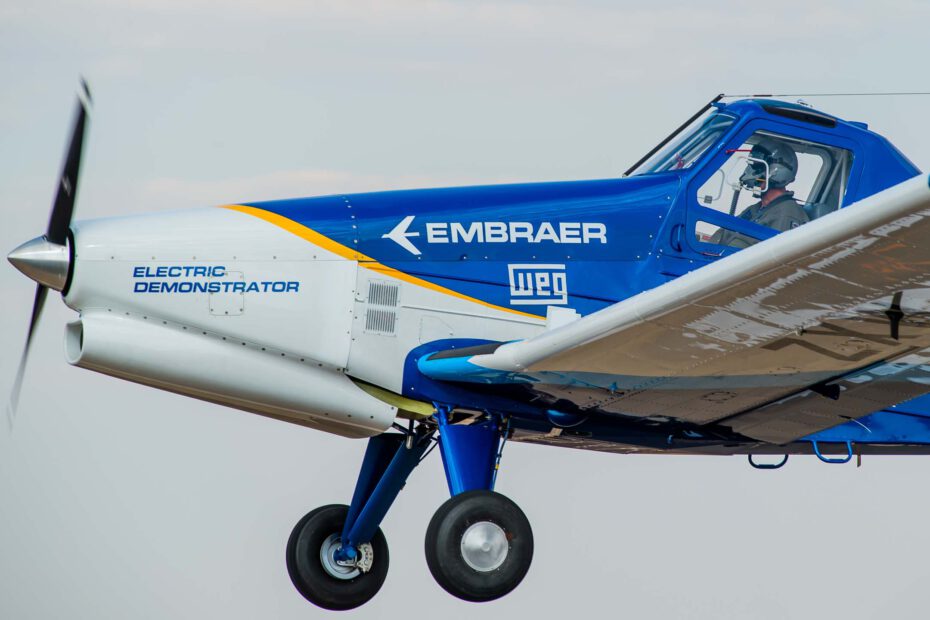EMB-203 Ipanema – electric demonstrator aircraft
São José dos Campos, Brazil, August 13, 2021 – On the journey to a net zero-carbon emissions future, another initiative of Embraer has reached a new stage with the beginning of the flight test campaign of the electric demonstrator aircraft. Developed to evaluate new technologies and solutions that enable 100% electric and more sustainable aeronautical propulsion, the demonstrator conducts tests at Embraer’s facility in Gavião Peixoto, in São Paulo, Brazil.
This is another promising step in the successful scientific and technological cooperation that has brought together Embraer and two renowned providers of electric mobility solutions, WEG and EDP. The open innovation strategy has accelerated the development of the needed technologies to increase the future aircraft´s energy efficiency through the use and integration of electrical devices into an innovative propulsion system.
Power, performance, control, thermal management, and operation safety were the primary features evaluated in these manned first flights. The goal is to demonstrate real flight conditions through results obtained from computational simulations, lab tests and ground integration of technology, which have taken place since the second half of 2019.
“The first flight of an aircraft is always an important milestone, and the takeoff of our first zero-emission electric aircraft also represents the relevant contribution of our teams and partners to the energy transition of the sector,” said Luis Carlos Affonso, Vice President of Engineering, Technology Development and Corporate Strategy of Embraer. “We are committed to seeking solutions to enable the future of a more sustainable aviation and innovation will play a key role in this journey.”
This technological cooperation project used an electric powertrain system from WEG and a set of batteries funded by EDP that were integrated into an EMB-203 Ipanema, an aircraft that is part of Embraer’s history. In 2004, it became the world´s first aircraft certified and produced in series to fly on fuel from a renewable source (ethanol).
Embraer has a permanent technological development program, which has enabled efficiency gains in aircraft performance, reducing its consumption and greenhouse gas emissions. Research in aeronautical electrification is part of a broader effort to explore a new generation of renewable energy and the transition to a net zero-carbon emissions future.
The knowledge acquired on the electric demonstrator aircraft tests will allow Embraer to develop innovative new products in line with the company’s continuous search for a sustainable future. This is the case of eVTOL (electric vertical landing and take-off aircraft), also known as EVA (Electric Vertical Aircraft or electric vertical aircraft), developed by Eve, Embraer’s Urban Air Mobility company.
Source: Embraer
